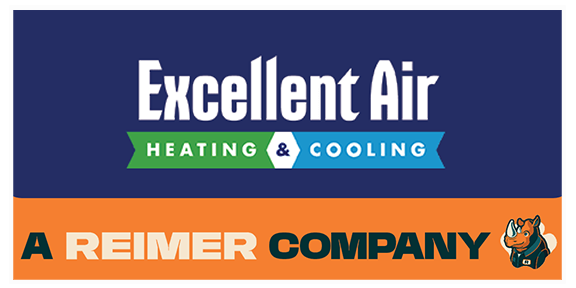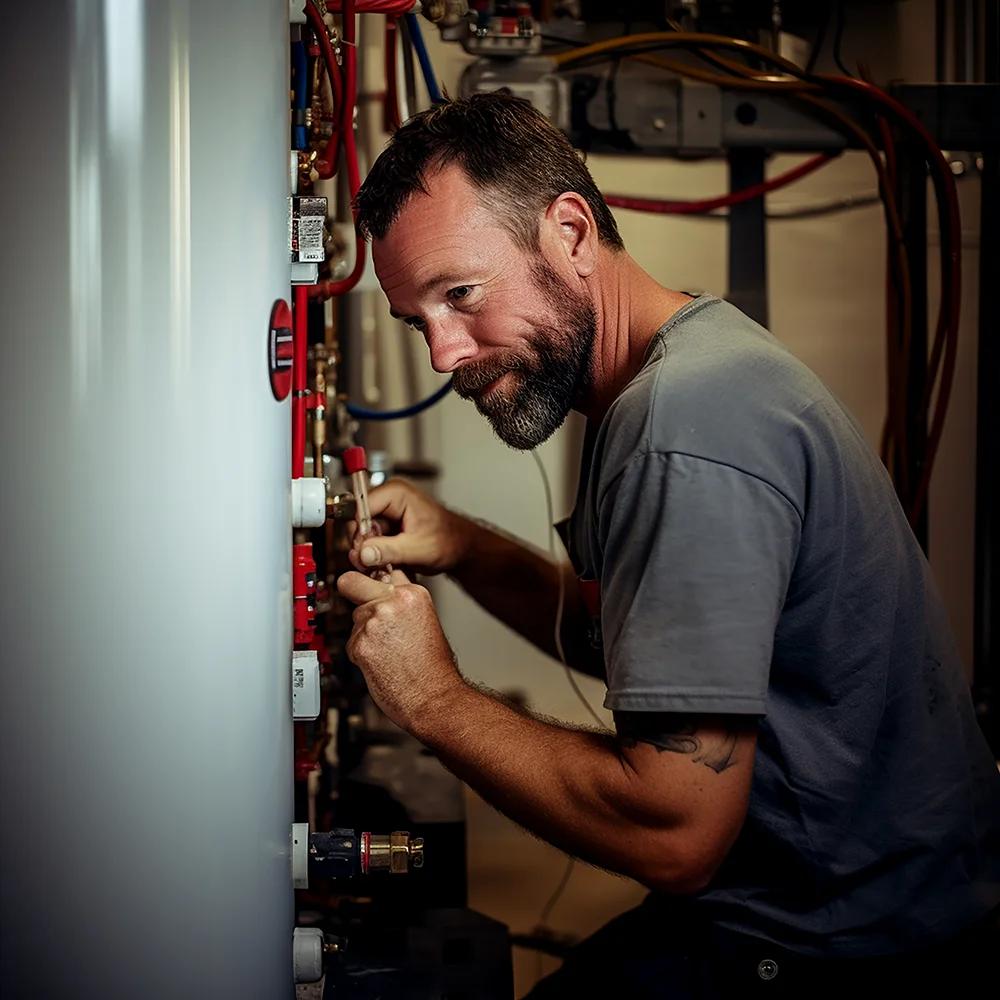More Than Just Hot Water:
It’s an appliance we rely on every single day, yet most of us never think about it until it fails. The humble water heater is the unsung hero of modern comfort, providing the hot water necessary for showers, laundry, and dishwashing. When it’s time for a replacement, homeowners are often surprised to find they have more choices than just another big tank. Today’s water heater market offers advanced solutions designed for higher efficiency, endless hot water, and a smaller footprint.
At Excellent Air Heating & Cooling, we help Henrietta homeowners navigate these options to find the perfect fit for their family’s needs and budget. Let’s break down the two main categories of water heaters: traditional tank-style heaters and modern tankless (on-demand) systems.

The Workhorse: Traditional Tank-Style Water Heaters
This is the system most people are familiar with. A large, insulated tank holds and continuously heats a reservoir of water (typically 40-80 gallons), keeping it ready for whenever you turn on a hot water tap. A thermostat monitors the water temperature and cycles a gas burner or electric heating elements on and off to maintain the set temperature.
Advantages of Tank-Style Heaters:
- Lower Upfront Cost: The primary advantage of a traditional water heater is its lower purchase and installation price, making it an attractive option for homeowners on a tighter budget.
- Proven Technology: This technology has been around for decades. It’s simple, reliable, and most technicians are very familiar with servicing them.
- Consistent Water Pressure: Because it’s delivering water from a large tank, it can typically supply multiple fixtures at once without a noticeable drop in pressure.
Disadvantages of Tank-Style Heaters:
- Standby Heat Loss: The biggest drawback is energy inefficiency. The heater is constantly using energy to keep dozens of gallons of water hot, 24/7, even when you’re asleep or away from home. This is known as standby heat loss.
- Limited Hot Water Supply: Once the hot water in the tank is depleted, you have to wait for the heater to warm up a new tankful. Anyone in a large family is familiar with the race to be the first to shower.
- Large Footprint: These units are bulky and require a significant amount of floor space in a utility room, closet, or basement.
- Shorter Lifespan: The average lifespan of a tank-style heater is about 10-12 years, as corrosion and sediment buildup eventually cause the tank to fail.
The Innovator: Tankless (On-Demand) Water Heaters
Tankless water heaters represent a major leap forward in efficiency and convenience. Instead of storing hot water, these compact units heat water instantly as it flows through the device. When you turn on a hot water tap, a flow sensor activates a powerful gas burner or electric element that heats the water to your desired temperature in seconds.
Advantages of Tankless Water Heaters:
Endless Hot Water: Since the unit heats water on demand, it never runs out. You can run the dishwasher, do laundry, and have multiple people shower consecutively without ever getting a blast of cold water.
Significant Energy Savings:
- Endless Hot Water: Since the unit heats water on demand, it never runs out. You can run the dishwasher, do laundry, and have multiple people shower consecutively without ever getting a blast of cold water.
- Significant Energy Savings: By eliminating standby heat loss, tankless systems are vastly more efficient. They only use energy when you are actively using hot water, which can reduce your water heating costs by up to 30-40% annually.
- Space-Saving Design: Tankless units are small, wall-mounted devices, often no larger than a suitcase. This frees up valuable floor space that can be used for storage or other purposes.
- Longer Lifespan: With proper maintenance, a tankless water heater can last 20 years or more, nearly double the lifespan of a traditional tank model.
Disadvantages of Tankless Water Heaters:
- Higher Upfront Cost: The initial investment for a tankless unit and its installation is significantly higher than for a tank-style heater.
- Potential for System Upgrades: The high-powered burners may require a larger diameter gas line, and powerful electric models may require an upgraded electrical panel. This can add to the installation cost.
- Flow Rate Limitations: While the hot water is endless, a tankless unit is rated for a specific flow rate (gallons per minute). A unit that is too small for the home may struggle to supply hot water to multiple fixtures simultaneously.
Making the Right Choice with Excellent Air
So, which system is right for you? The answer depends on several factors:
- Household Size: Larger families who frequently run out of hot water are prime candidates for a tankless system.
- Budget: Do you prioritize lower upfront costs or long-term energy savings?
- Energy Goals: If reducing your home’s carbon footprint and utility bills is a priority, a tankless model is the clear winner.
- Installation Logistics: Do you have the necessary gas line or electrical capacity for a tankless unit?
The experts at Excellent Air Heating & Cooling can perform a thorough assessment of your home and hot water usage patterns. We’ll explain the costs and benefits of each option, ensuring you get a perfectly sized and professionally installed water heater that will provide reliable comfort for years to come.





